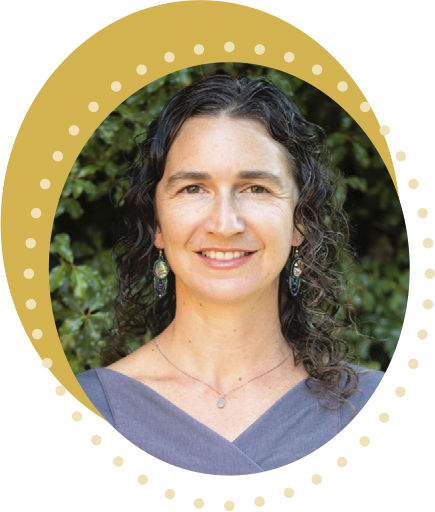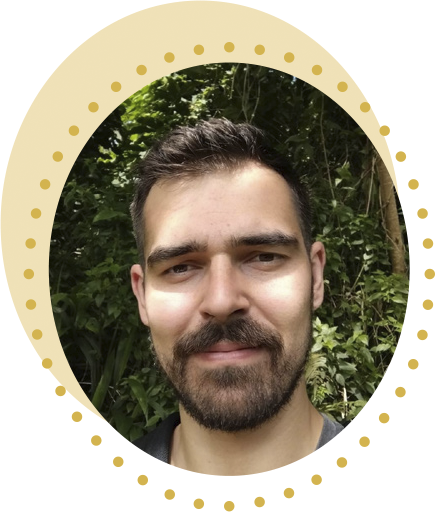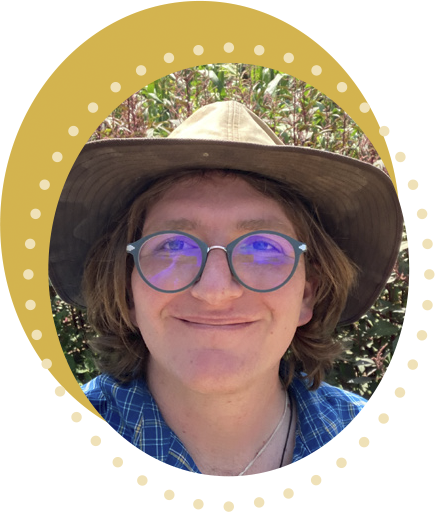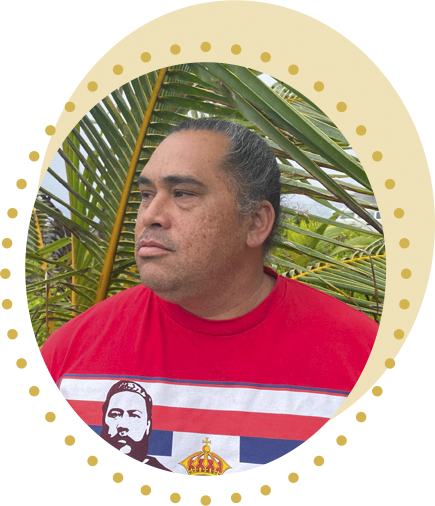The APSA Diversity and Inclusion Advancing Research Grants provide support for research that examines political science phenomena affecting historically underserved communities and underrepresented groups and communities. In December 2024, APSA awarded 22 projects for the APSA Diversity and Inclusion Advancing Research Grants for Indigenous Politics for a combined amount of $44,000. Read about the funded projects here: https://apsanet.org/diversity/apsa-diversity-advancing-research-grants/advancing-research-grants-indigenous-politics/2024-advancing-research-grants-for-indigenous-politics-recipients/
PROJECT TITLE:
The Role Urban Indian Organizations Play in Addressing the Needs of Urban Indians in the US
REGINA BRANTON is the Marshall A. Rauch Distinguished Professor of Political Science at the University of North Carolina at Charlotte. She holds a PhD in political science from the University of Arizona, an MA in political science from the University of Wyoming, and a BA in political science from the University of South Carolina. Her research focuses on race and ethnicity politics, marginalized groups, and contentious politics. She has published articles in the Journal of Politics, the American Journal of Political Science, Political Research Quarterly, and other journals. Her research has been funded by grants from the Dirksen Congressional Center, APSA Fund for Latino Scholarship, James A. Baker III Institute for Public Policy, Center of Spanish Language Media at the University of North Texas, and the Immigration Research and Policy Center at the University of North Texas.
PROJECT TITLE:
Micro-Nations: Constructing Boundaries of Inclusion in Latin America
CHRISTOPHER CARTER is an assistant professor in the department of politics and the John L. Nau III Assistant Professor of the History and Principles of Democracy at the University of Virginia. He is also a Research Associate at the Center on the Politics of Development at the University of California, Berkeley, and a Fellow at the Governance and Local Development Institute. His primary research agenda focuses on the historical evolution of Indigenous-state relations in Latin America, spanning from independence to the present. In his forthcoming book, The Long Shadow of Extraction: The Origins of Indigenous Autonomy Demands (Princeton University Press), he explores how historical experiences of land and labor loss influenced Indigenous groups’ demands for autonomy. The research for this project earned the 2020 APSA Best Fieldwork Award and the 2021 Juan Linz Prize for Best Dissertation in the Comparative Study of Democracy. His work has also received the Leon Weaver Best Paper Award from APSA’s Representation and Electoral Systems Section and an honorable mention for the Sage Best Paper Prize from APSA’s Comparative Politics Section. All of his research employs a multi-method approach, utilizing experimental and natural experimental data alongside extensive interviewing and archival research.

PROJECT TITLE:
Buen Vivir and Sumak Kawsay: Challenges and Possibilities in Rebuilding Alternative Worlds
CRISTINA CONESA PLA (she, her) is a third-year PhD candidate in political science at the London School of Economics and Political Science (LSE). Her thesis explores methodological questions about knowledge production and notions of difference, alterity, and diversity in proposals for alternative politics beyond Euro-American categories of thought. In her work, she focuses on how conceptions of indigeneity are constructed and deployed culturally and politically by insiders and outsiders; Andean politics focusing on Ecuador’s Buen Vivir / Sumak Kawsay and the proposal for an inter-cultural and plurinational state; and the politics of Indigenous resurgence more generally. She specializes in comparative political theory intersecting with cultural anthropology and indigenous studies.

PROJECT TITLE:
Chinook Justice: A Survivance Journey
RACHEL CUSHMAN is an enrolled citizen of the Chinook Indian Nation, where she is both an elected and hereditary leader. In 2017, Cushman was elected to the Chinook Tribal Council, but her role as a leader stems from her ancestor, Clatsop Tyee Wasilta. Cushman is an Indigenous knowledge practitioner, activist, educator, and canoe skipper. For over 20 years, Cushman has fought to protect Chinook and Indigenous lands, waters, rights, and sovereignty. She is a published scholar and a world-renowned expert on Chinook history and politics. Her scholarship engages with the resurgence of Indigenous ways of being/knowing, Indigenous futurities, pigmentocracy, non-colonial economies, and Indigenous land stewardship, as well as the praxis of radical sovereignty. Currently, Cushman is doctoral candidate of Indigenous, race, and ethnic studies at the University of Oregon.

PROJECT TITLE:
Exploring Indigenous Governance and Cultural Evolution in Oaxaca, Mexico
MAURICIO-FERNÁNDEZ DUQUE is an assistant professor at CIDE and a visiting scholar at Dartmouth. He is a behavioral economist who uses economic theory and empirics to study topics in the intersection of economics, psychology, political science, sociology and anthropology. Topics he is interested in include the diffusion of social norms, how social identity affects behavior, the solution of collective action problems, child development in rural communities in Mexico, consumption of memory and the impact of indigenous cultural norms on political and economic outcomes. Born in Mexico City, he received a PhD in political economy and government from Harvard in 2015, and a BA in economics and political science from ITAM in 2007.

PROJECT TITLE:
Learning to Survive: Yurok Well-being in School
MNEESHA GELLMAN is associate professor of political science in the Marlboro Institute for Liberal Arts and Interdisciplinary Studies at Emerson College, in Boston. Her research spans human rights and democratization in Latin America and globally. She is the author of many books, including Misrepresentation and Silence in United States History Textbooks: The Politics of Historical Oblivion; Indigenous Language Politics in the Schoolroom: Cultural Survival in Mexico and the United States; and Democratization and Memories of Violence: Ethnic Minority Social Movements in Mexico, Turkey, and El Salvador. She is currently working on the manuscript Learning to Survive: Yurok Well-being in School.

PROJECT TITLE:
Native Americans’ Political Identity and Behavior in Wisconsin
NATALIE JONES-KERWIN is a fourth-year political science PhD candidate at the University of Wisconsin-Madison, where she studies American and comparative politics. She is a proud tribal member of the Bad River Band of Lake Superior Chippewa tribal nation. In April 2022, Natalie was selected as a National Science Foundation Graduate Research Fellow. She has also been awarded the SHEP American Indian Graduate Award and the Riley Baldwin Wisconsin Idea Grant, supporting her efforts to help her tribal nation develop long-term solutions for data sovereignty. Natalie’s scholarly interests and dissertation focus on Native American political identity and behavior, exploring it both as a racial or ethnic identity and as a national identity tied to citizenship in tribal nations. Her work also aims to advance understanding and advocacy for tribal sovereignty rights.

PROJECT TITLE:
The Social Dimensions of Indigenous Politics: Chamoru Identity, Political Efficacy, Organizational Participation, and Uncertainty in Guåhan
KEVIN LUJAN LEE (CHAMORU) is an assistant professor in the department of Indigenous studies. As a political sociologist, he draws on theories and methodologies from political science, sociology, and Indigenous studies to improve how we understand Indigenous social movements under contemporary settler-colonialism and imperialism. Kevin’s current research centers on (1) the Chamoru politics of decolonization in his homeland of Guåhan; (2) Pacific Islander social movements in the continental United States; and (3) Indigenous Oceanic political thought, in collaboration with Josh Campbell (UCLA). His interdisciplinary, community-engaged work has been published in the fields of political science (Journal of Race, Ethnicity and Politics), Indigenous and Pacific studies (Wíčazo Ša Review, The Contemporary Pacific), and urban planning (Environment and Planning F, Planning Theory & Practice).’

PROJECT TITLE:
Contesting Extractive Futures: Indigenous struggles against the East African Crude Oil Pipeline
FELIX MANTZ (he/him) is a faculty member in the department of political science at the University of Hawai‘i at Mānoa. He completed his PhD in political science at Queen Mary University of London. His research is transdisciplinary, spanning across international political economy, environmental politics, and anti/decolonial studies. Felix works on the myriad ways in which the global political economy, planetary environmental crises, and colonial structures of power are entangled. Drawing on a range of critical theories, especially anti/decolonial, anarchist, and Indigenous thought, he is particularly interested in questions of land, autonomy, food systems, and extractivism. Felix’s teaching and research are based on a commitment to challenge unjust systems of power and, as the Zapatistas would put it, recover, (re)build, and defend a world in which many worlds fit. Most of his work has a regional focus on East Africa and Mesoamerica.

PROJECT TITLE:
Increasing Support for Reconciliation in Settler Colonial Societies: The Role of Informational Interventions
MARCO MENDOZA AVIÑA is a third-year PhD candidate and a James M. and Cathleen D. Stone PhD Scholar in Inequality and Wealth Concentration in the department of government at Harvard University. Marco studies how diversity, inequality, and exclusion shape elections, public opinion, and voting behavior. His research agenda involves (re)assessing contextual effects in politics, reducing prejudice through persuasion, and—for his dissertation—understanding how and why identity politics mostly caters to affluent voters, not those it claims to represent. More broadly, Marco is interested in race and ethnic politics, migration and citizenship, class and inequality, survey methodology, experimental research, and metascience.

PROJECT TITLE:
From Local Organizations to Cross-Regional Coalitions: National Convergence in Latin American Indigenous Movements
KARLA MUNDIM is an assistant professor of political science at John Jay College—CUNY. Her research interests include Indigenous social movements, extractivism, and theories of colonialism, multiculturalism, and territoriality, with a particular focus on Latin America. Her ongoing book project explores Indigenous movements in the Andean region through a comparative-historical lens. Her work on Indigeneity, gender, and territoriality has been published in Politics, Groups, and Identities. Prior to joining John Jay, Dr. Mundim worked as a comparative politics editorial assistant and the Interim Book Review editor for Perspectives on Politics.

PROJECT TITLE:
A Structural Account of Epistemic Injustices: Reconsidering the Finniss River Land Claim (1981)
QIAN QIAN NG is a second-year doctoral student reading political theory at the University of Michigan. Focusing on the Finniss River Land claim, her project brings together feminist epistemology and legal anthropology to explore the sociology of knowledge in Native Title process in Australia. She has other projects, often collaborative, on the role of anger in social movements, consent in universities, expressions of misogyny in the manosphere, and trauma in the reception of drug war photojournalism in the Philippines.

PROJECT TITLE:
Indigenous Autonomy amongst the Kichwa de Sarayaku
ROBERT NICHOLS is Professor of History of Consciousness at the University of California, Santa Cruz. His work in social and political thought takes up questions of power, sovereignty, property, and historical consciousness, especially as they inform and animate struggles at the intersection of anti-capitalism and anti-colonialism.

PABLO ESCUDERO VASCONEZ is a PhD student in history of consciousness at UC Santa Cruz. His project explores the ways nation-building discourses in twentieth and twenty-first century Andean and Amazonian regions worked to justify internal colonialism in the name of modernization.

PROJECT TITLE:
Examining Women’s Representation in Tribal Governance: An Analysis of Executive and Legislative Roles
TESSA PROVINS is an assistant professor in the School of Government and Public Policy at the University of Arizona. Prior to joining the University of Arizona, she was an assistant professor in the political science department at the University of Pittsburgh from 2018 to 2024. She received her MA and PhD in political science from the University of California, Merced in 2016 and 2018, respectively, and a BA in economics from Stanford University in 2013. Her research primarily focuses on two areas: American legislative institutions and Indigenous institutions and policy. In her work on American institutions, she examines how the design of legislative bodies impacts outcomes for groups divided by race, gender, and party affiliation. Her research on Indigenous institutions explores the structure of Native American tribal governments and their effects on intra-tribal, inter-tribal, and government relationships, as well as policy outcomes. While she has several ongoing projects that include tribal case studies, including work on her own tribe, the Choctaw Nation of Oklahoma, most of her Indigenous politics research takes a pan-tribal approach. Her research has been published in journals such as the Journal of Politics, Journal of Public Policy, Political Research Quarterly, Legislative Studies Quarterly, Public Choice, and Social Science Quarterly.

PROJECT TITLE:
Green Corn Renaissance: Mvskoke Food Sovereignty and the Political Ecology of O’safke
NOAH SCHLAGER cvhocefketos. Este Mvskokvlket owis. Through their mother, Donna Wiggins, they are Mvskoke-Creek, Southern Creole, and Anglo from the longleaf pinelands of the southern Mvskoke homeland. Through their father, Dan Schlager, they are Jewish from communities which once existed in contemporary Ukraine and Romania. They are a PhD student at the University of Arizona, concentrating on the intersection of Indigenous sovereignty, working lands, and biodiversity conservation. Their work engages the fields of human geography, biogeography, and critical agrarian studies. They currently live and work as a visitor in Cukson on the unceded lands of the Tohono O’odham and Pascua Yaqui. This grant by APSA is funding research into the political ecology of Mvskoke farming in the 20th century. They will examine the relationship between Mvskoke farmers, traditional crops, and political sovereignty.

PROJECT TITLE:
A Culture of Consensus: Congruence and collective choice among the Tswana
JULIO S. SOLÍS ARCE is a PhD candidate at Harvard University in the department of government. His research focuses on the cultural foundations of political and economic development across human societies. Specifically, he studies historical decision-making processes in non-state societies and how they shape preferences and expectations regarding the functioning of formal and informal political institutions. He employs a multidisciplinary approach, combining ethnographic methods and experimental economics. Additionally, he works on designing interventions that utilize deliberative technologies to foster common ground between political rivals, with the aim of facilitating policy and political change. His regional focus is Sub-Saharan Africa, with ongoing projects in Ghana and Botswana. Before joining Harvard, Solís Arce completed a master’s degree at the African School of Economics in Cotonou, Benin, and graduated from the Instituto Tecnológico Autónomo de México (ITAM) in Mexico City, Mexico.

PROJECT TITLE:
How has Federalism Shaped (and Constrained) Native American Political Rights?
MELANIE JEAN SPRINGER is currently an associate professor of politics at the University of California at Santa Cruz. She received her PhD in political science from Columbia University in 2006. She began her academic career in the political science department at Washington University in Saint Louis. In the Fall of 2013, she joined the politics faculty at the University of California at Santa Cruz. She specializes in American politics. Her research and teaching interests include American political development, political history, voting and elections, state politics, political geography, sovereignty, Native American political rights, political parties, partisanship, and political institutions. Her book How the States Shaped the Nation: American Electoral Institutions and Voter Turnout, 1920-2000 was published in 2014 with the University of Chicago Press (Chicago Studies in American Politics). This work examines the effects of numerous state-level electoral institutions on 20th century voter turnout rates in the American states. Her research has also been published by Brookings Institution Press, and in Political Research Quarterly, State Politics and Policy Quarterly, Public Opinion Quarterly, Social Science Quarterly, American Politics Research, the Journal of Policy History, and the Journal of Community Engagement and Scholarship.

PROJECT TITLE:
The Hawaiian Land Hui Movement: Race, Law, and Property in Territorial Hawai’i
MAHINA TUTEUR is from Ko’olaupoko, O’ahu and is currently pursuing a PhD in Indigenous politics at the University of Hawaii at Mānoa. She is a graduate of the William S. Richardson School of Law, with certificates in environmental and native Hawaiian law. She has worked at several non-profit, state and federal agencies and currently serves on the State Environmental Council. Mahina is a Post-Juris Doctor Research & Teaching Fellow at Ka Huli Ao Center for Excellence in Native Hawaiian Law, where she coordinates legal trainings for state and county decision-makers, facilitates water law workshops for Native Hawaiian communities, and assists with various scholarship projects aimed at evolving the law and advancing justice for Kānaka Maoli and other Indigenous Peoples.

PROJECT TITLE:
Types of Knowledge in Democratic Procedures: How Bureaucratic Policymaking Fails Alaska Native Subsistence Fishers
JOSEPH WARREN is an assistant professor of political science at the University of Alaska Anchorage. His research concerns the historical development of state institutions, as well as the relationship between state authority and democratic self-government. To study this, his work utilizes a variety of methods, including game theory, survey experiments, and historical analysis. In an ongoing book project, Joseph traces the role of ideas about democracy in the development of the US administrative state. The book then evaluates the contemporary democratic status of administrative agencies through a case study of the predominantly Alaska Native communities of the Yukon-Kuskokwim Delta region of Alaska and their experience with federal administrative policymaking. Joseph’s research also investigates democratic institutions in the context of housing politics.

PROJECT TITLE:
Political Enfranchisement and Voting Behaviour: Indigenous and White Electoral Mobilization After Right to Vote Legislation in 1960s Canada
MARK WILLIAMSON is a postdoctoral fellow with the Evidence in Governance and Politics network at Toronto Metropolitan University. His research sits at the intersection of political behavior, public opinion, and race, ethnicity and politics. He studies how information shapes people’s beliefs, attitudes and behaviors, with a specific interest in how they update their views toward out-groups. Focusing primarily on Canada and the United States, his work explores how members of dominant groups think about historical injustices committed against others in the past. His research employs a range of designs and data sources, including experiments, surveys, observational data, and text-as-data methods.

PROJECT TITLE:
Americanizing Luakini: White Supremacy Colonizing the Hawaiian Nation State
KALANIAKEA WILSON is a political science Indigenous politics PhD ABD candidate at the University of Hawaii at Manoa. His research excavating the largest indigenous language archive in the early 19th century reveals a different history from the present understanding about Hawaii today. The complexity and longevity of Hawaii’s situation demanded multiple theoretical frameworks from diverse fields to properly analyze the situation Indigenous politics, international law, genocide studies, and language revitalization. He analyzes the evolution of culture from the collision between foreigners and indigenous leadership leading up to a century of denationalization Americanization policies that obliterated the Hawaiian national consciousness in the independent neutral nation state the Hawaiian Kingdom. Tourism as an economic component of genocide continue to target native Hawaiians for removal today. From approximately a population of a million Hawaiians prior to foreign contact in 1778 to only a few hundred kanaka maoli (full-blooded native Hawaiian) living today. This research is dedicated to the last living full-blooded native Hawaiian in his family, Panana. The 132 yearlong illegal occupation, state of war, and genocide eliminated the full-blooded native Hawaiian, thus, Your Vacation Our Genocide.

PROJECT TITLE:
The Political Legacy of Indian Residential Schools
ANDREW ZHAO is a PhD student in the department of political science at the University of California, Berkeley, where he is also a Hildebrand Fellow at the Canadian Studies Program and a Graduate Fellow at the Citrin Center for Public Opinion Research. He is broadly interested in identity and politics, including the social construction of identities and the historical legacies of institutions that attempted to make race. His project concerns the long-term political consequences of Indian residential school policy in Canada. ■



